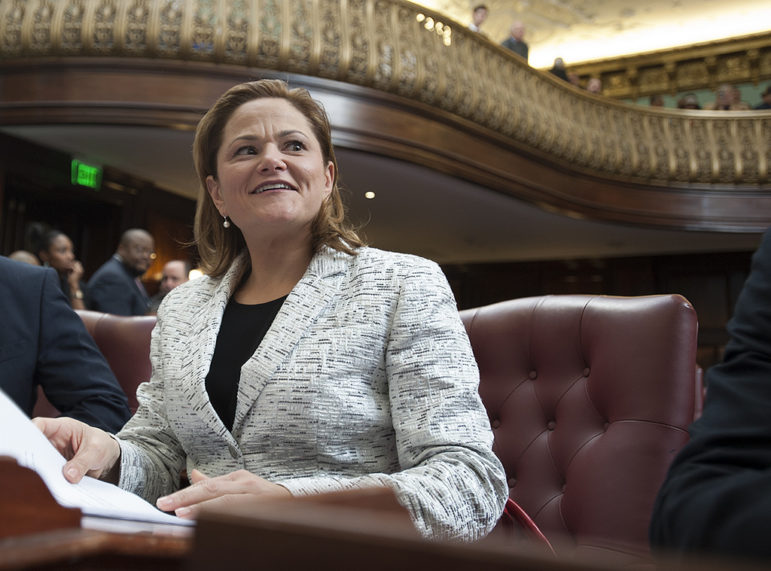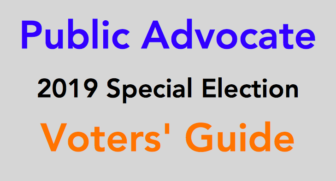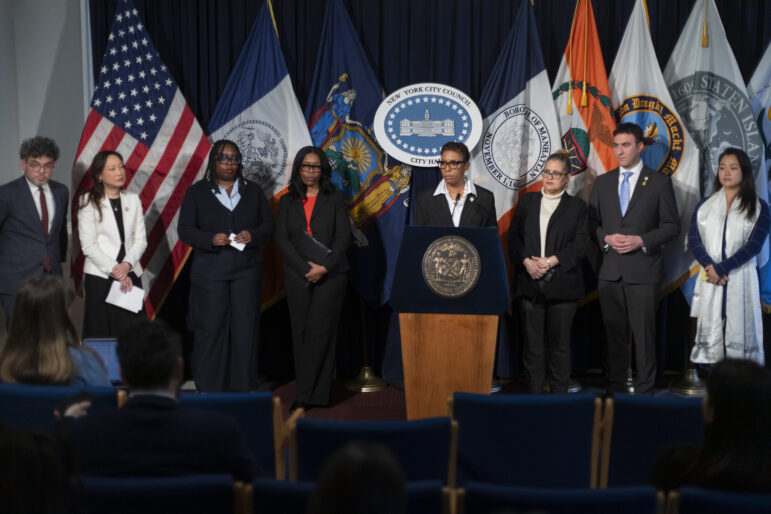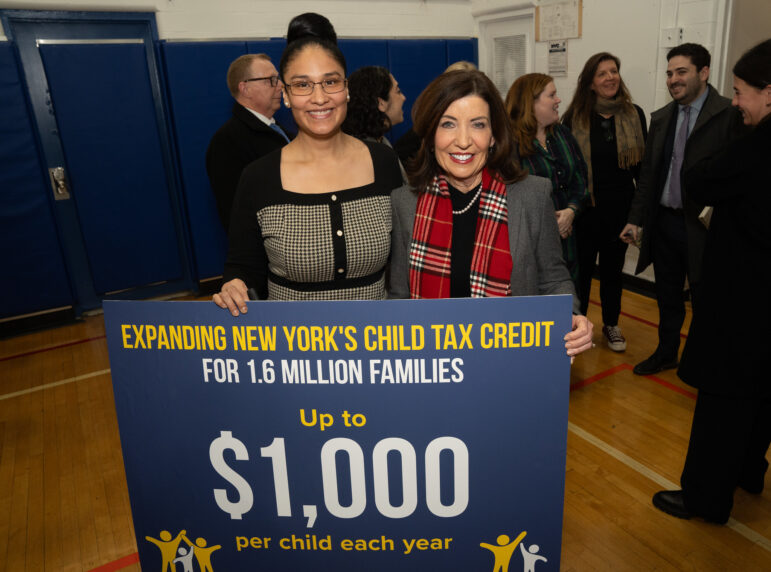
William Alatriste for the City Council
Mark-Viverito as she was elected Speaker in early 2014. Over the subsequent four yers, she helped shape major changes on immigration and criminal-justice policy.
Melissa Mark-Viverito’s extensive policy platform for her public advocate campaign leads with a promise to do more to shore up NYCHA, an agency whose failings have been front-page news for years. Among the 16 people on the ballot for the February 26th special election, she’s hardly the only one who talks about the needs of public housing. But as a former City Council speaker who presided over that body from 2014 through 2017, she is the only one who was ever in a position with real power to do something to mitigate that crisis. Did she use it?
“From the day I walked into City Council in 2006, I was making NYCHA a priority,” Mark-Viverito told WBAI’s Max & Murphy Show on Wednesday. “At a time when [Mayor] Bloomberg and the city of New York was not investing anything into NYCHA I pounded the pavement because I represented the most public housing—along with some colleagues.”
“These were NYCHA residents who needed our voice,” the former speaker continued. “We went from a point where there was zero investment in NYCHA to a point where, after all the cajoling, we have now seen an historic level of investment in this city, which is not enough. Going from zero to a $20 billion investment over 10 years is substantial.” There’s more to do, she says: Mark-Viverito wants to convene a “war room” to force agencies to work together on fixing NYCHA.
“You want to make this a priority? Then I’m gonna make sure we shame all of you into setting aside your pettiness, and setting aside the pissing matches and coming together to figure out what resources we have and – not pointing fingers,” she said. “We have to make sure this is a priority. Everyone has a responsibility here.”
In a special-election field that includes three members of the Assembly—including a vice chair of the national Democratic party—and four current Councilmembers (one of whom just ran for lieutenant governor), Mark-Viverito is emphasizing her role in achieving transformative changes as speaker, like pushing to remove federal immigration authorities from city jails, creating a legal defense fund for low-income immigrants facing deportation and shoving the notion of closing Rikers from radical idea to adopted mayoral policy.
That line of argument comes with its own baggage: If Mark-Viverito rightly claims a large share of the credit for the extent of progressive change during Bill de Blasio’s first term, she also could be on the hook for perceived missteps and failures during that time, like a watered-down Right to Know Act and the mandatory inclusionary housing program, which some of her rivals have criticized. The defense to that criticism is that, as speaker, her power—while considerable—had limits.
Get the best of City Limits news in your inbox.
Select any of our free weekly newsletters and stay informed on the latest policy-focused, independent news.
That will be true as public advocate as well, where she will have a fairly small staff and budget and lack the speaker’s authority to check the mayor on land-use or spending. Her chief asset will be her voice, which Mark-Vierito has stressed would be the only female one at a citywide level where three white men—the mayor, Comptroller Scott Stringer and current Speaker Corey Johnson—now dominate. This is more than symbolic, she insists: Including women’s voices during her speakership led to laws mandating the provision of feminine hygiene products in schools and prisons. And right now, she says, a women’s voice must ask for a deeper explanation of the rise in reported rapes in the city, which has received relatively scant attention.
“We’re missing a large piece of our experience and our voice to shape policy,” she said. “That’s one of the reasons I decided to jump in.”
Hear the conversation below, or listen to the full show, where we also speak with Sexual Harassment Working Group member Rita Pasarell.
Former Council Speaker Melissa Mark-Viverito
Max & Murphy: Full Show of February 13, 2019









3 thoughts on “Melissa Mark-Viverito Points to Her Track Record in Bid for Public Advocate”
So, you’re not going to touch on her refusal to support (i.e., block) the Small Business Jobs Survival Act and Picture the Homeless’s anti-warehousing legislation – or her role in gentrifying Central and East Harlem, first by endorsing the rezoning of West 125th Street and, later, East Harlem? Seriously?
Good points. This wasn’t a comprehensive review of her speakership, not at all. Those moves and others are totally part of the record.
Let’s not forget Mark-Viverito’s atrocious environmental record, like the time when the would-be “Public Advocate” fought former Mayor Bloomberg because he wanted to ban the sale of large-size sodas in fast food restaurants? (Wonder if she’s changed her stance now that her political mentor Lillian Rodríguez-Lopez no longer works for Killer Coke? Oh, forgot that the Hispanic Federation is still one of their biggest lobbyists, so I guess that’s a no?) And, remember when Mark-Viverito failed miserably in her attempt to create a five-cent surcharge on all plastic bags, a de facto tax on poor people? Or, that time she unsuccessfully fought the ban of polystyrene foam containers after receiving a $4,950 “donation” from a manufacturer – and then tried to pass Intro 1480, a bill that would have declared polystyrene foam containers “recyclable?”